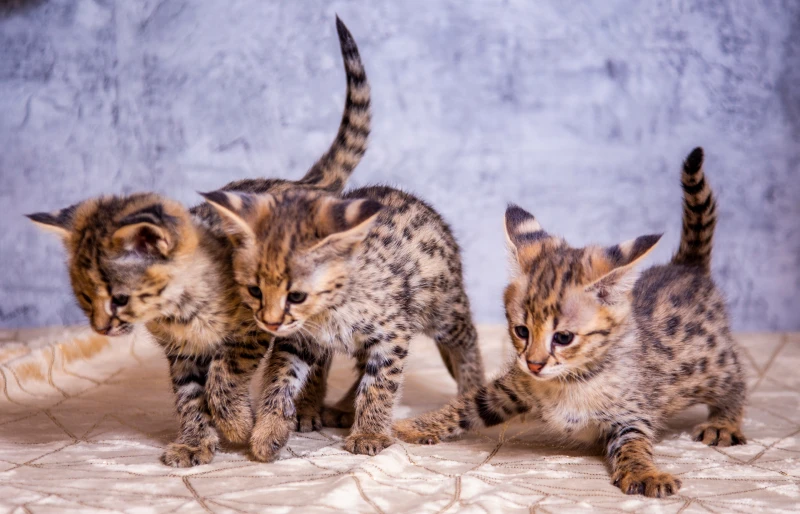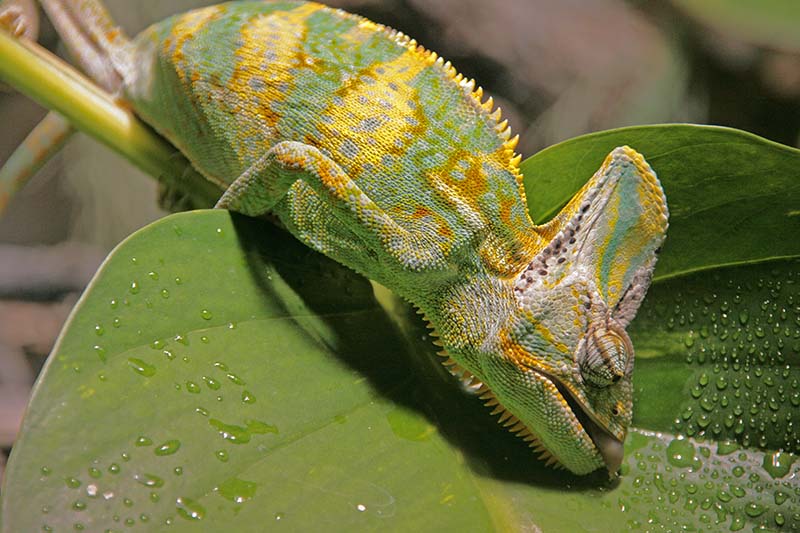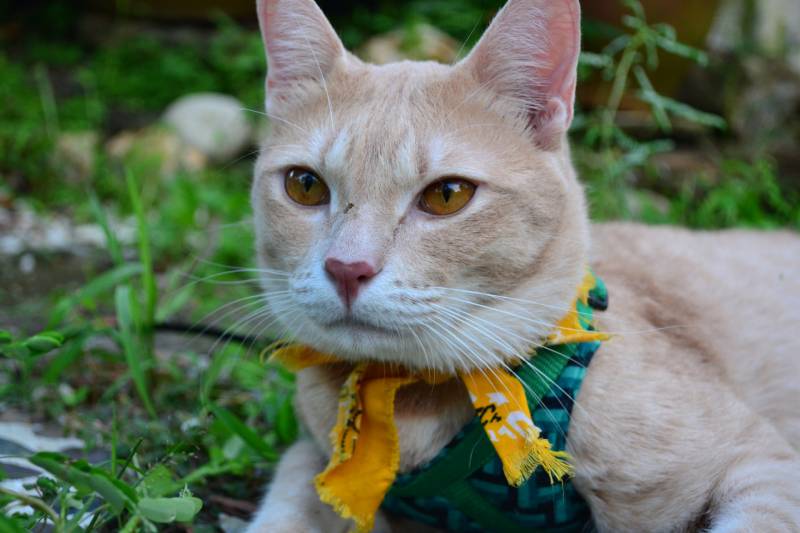VET APPROVED

The information is current and up-to-date in accordance with the latest veterinarian research.
Learn more »Click to Skip Ahead
If you ever wondered about wild and hybrid cats, one of them is the Savannah Cat. However, there are many welfare concerns with breeding and keeping this cat, due to their wild origins and a need for a very active lifestyle, which often cannot be fulfilled in a home setting. Owning this breed is prohibited in some states and countries, while others require a special license, depending on the generation.
These cats have a wild appearance and typically have a black or brown spotted coat, with the most common appearance being a light cream coat with solid black or brown spots. That said, they are very much dog-like, love attention, and typically do well with families. You can expect a Savannah cat to have an average lifespan of 12-15 years.
Read on below to find out more about the Savannah cat’s lifespan.

What’s the Average Lifespan of a Savannah Cat?
Savannah cats have an average lifespan of about 12–15 years, but some individuals may live into their late teens. This will depend on many factors, from genetic predispositions, health, weight, lifestyle, and more.
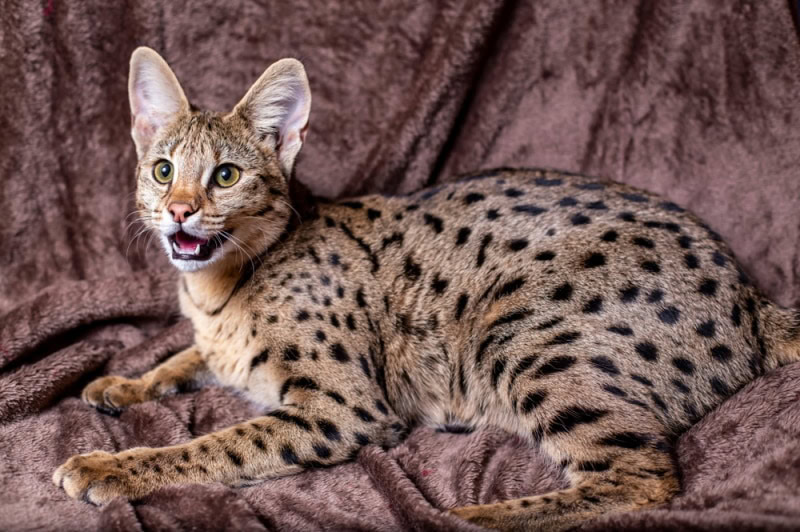

Why Do Some Savannah Cats Live Longer Than Others?
Cats are family members, and it’s in our best interest for them to live longer. Some factors, such as diet, healthcare, environment, and breeding history, can affect how long they live.
1. Diet
Just like in humans, the saying “you are what you eat” applies to cats too. If you provide your cat with a high-quality, balanced diet that is age-appropriate, and contains all the required nutrients for health, you are providing them with a strong base to build on. The diet should vary according to your cat’s lifestyle and health needs. But generally, you should aim for a complete diet formulated according to AAFCO recommendations with a high percentage of animal protein, moderate fat, and low carb content, and avoid overfeeding or underfeeding them.
Many cats also don’t drink enough water directly; instead, they consume much of their water through food. If your cat is consuming only dry foods and not taking in enough water, consider introducing wet food, offering a water fountain, and ensuring they are well hydrated. Speak to your vet about your cat’s nutritional needs and ways to improve their drinking.
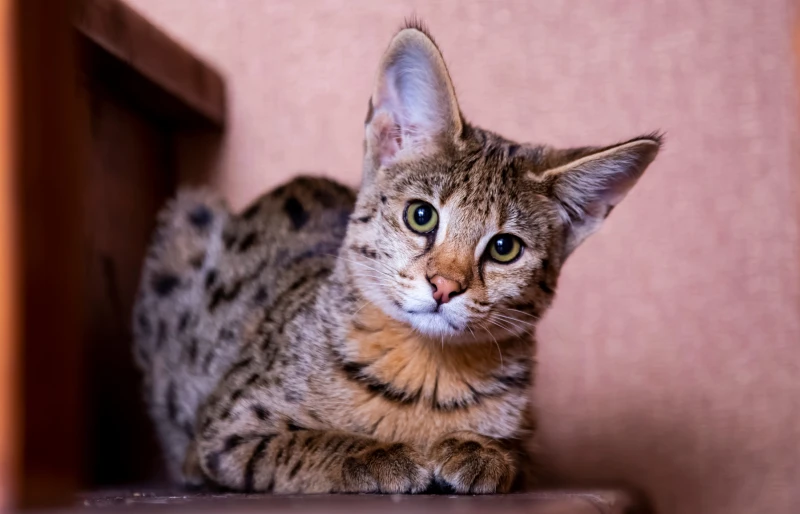
2. Healthcare
Regular vet visits are vital if you want your cat to live longer. Cats typically disguise pain and you might not notice when they are sick or injured, which could accelerate the condition further. Keeping up with preventative vet visits will help you identify serious health concerns before they become life-threatening. Health and genetic testing for parent cats and kittens is also crucial in ensuring they are not suffering from or carrying genes for certain hereditary health conditions, such as pyruvate kinase deficiency and progressive retinal atrophy.
If you are looking for professional advice without the stress of bringing your cat to the vet, we suggest booking a consultation with one of our vets.
3. Lifestyle
Indoor and indoor-outdoor cats tend to live longer than outdoor cats. Living outdoors exposes your cat to infectious diseases through fighting with other cats, predators, getting lost or frightened, and car accidents. Outdoor-only cats have an average lifespan of around 7 years, while indoor-only and indoor-outdoor cats are around 9-10 years, based on recent research. A big safe enclosure allows your cat to move around and exercise, which improves their physical and mental health, while keeping them safe from many dangers. For Savannah cats, these enclosures need to be very spacious, as these cats are used to roaming and need a lot of physical activity, which is why keeping them as indoor-only cats carries many welfare questions and concerns.
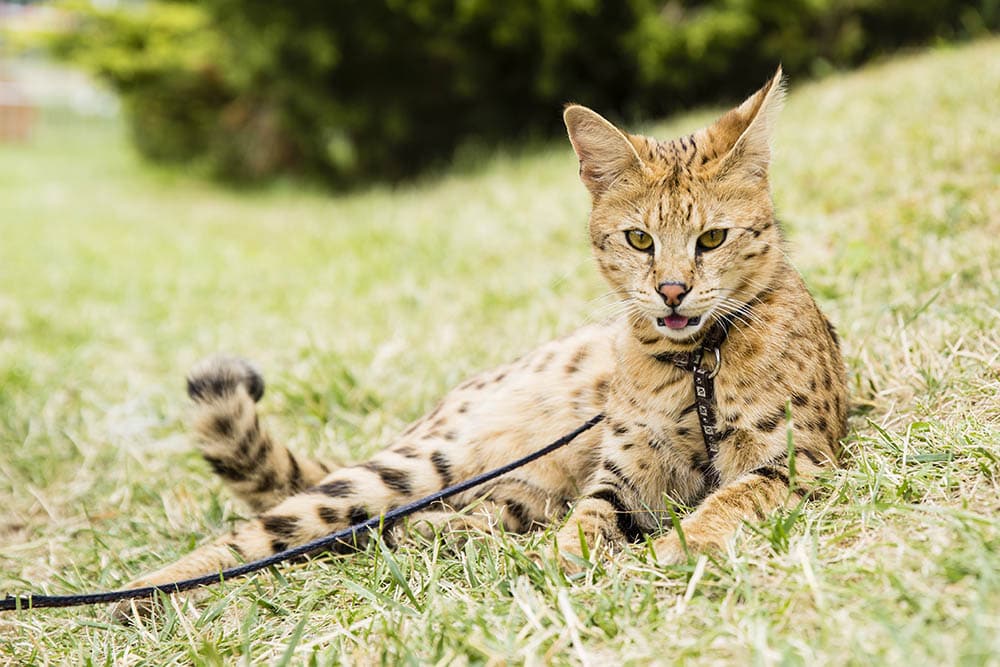
4. Size and Weight
According to the Association for Pet Obesity Prevention, over 60% of domesticated cats suffer from obesity. Obesity in cats leads to serious strain on their body, which can predispose them to mobility issues, heart disease, urinary problems, breathing difficulties, and joint problems. It can also predispose to type 2 diabetes. A quick trip to the vet clinic can help you determine whether your cat has a healthy weight and size.
5. Environment and Conditions
Boredom and stress can shorten your cat’s lifespan, leading to a variety of health and behavioral issues. Creating a conducive and enjoyable environment for your cat includes providing them with engaging toys, cat trees, perches, scratching posts, tunnels, and a safe and spacious fun outdoor playground. Savannah cats are also quite social—increasing your bonding and play time is a fun way to entertain them.
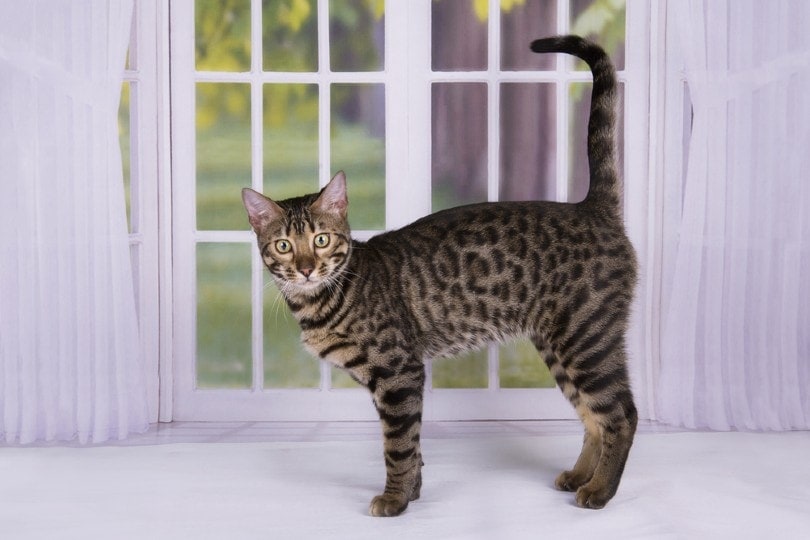
6. Sex
Spayed female cats live somewhat longer than neutered male cats, while both of these categories live significantly longer than intact males and females, according to research. Spaying and neutering your cat reduces the risk of certain illnesses and minimizes the urge to roam in search of a mate, which often leads to accidents and infectious diseases.
7. Breeding History and Genetics
According to a recent UK study, purebred cats live shorter than mixed-breed cats. Genetic diversity in mixed breeds reduces their risk of developing some hereditary diseases. Savannah cats are a fairly new and rarely kept hybrid, meaning there isn’t a lot of specific data surrounding their longevity and health.
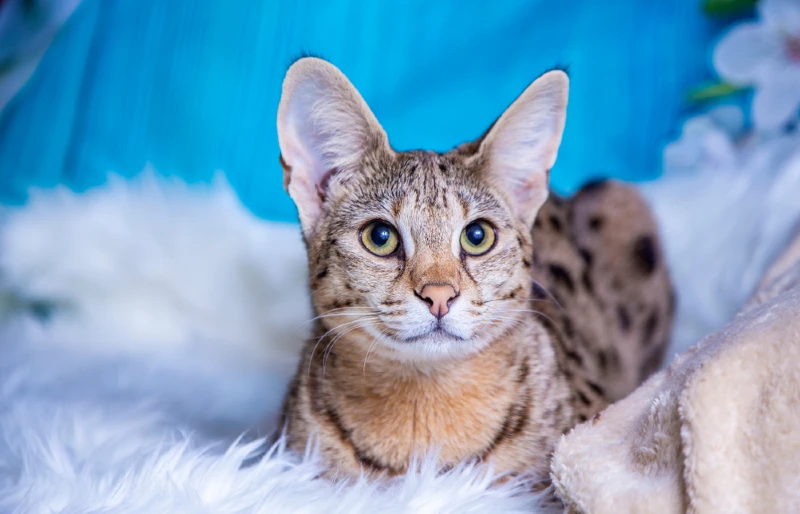

The 6 Life Stages of a Savannah Cat
1. Kitten
A Savanna kitten is in this stage until 6 months of age. As a bigger breed, they take longer to fully develop and mature. During kittenhood, they explore their environment, learn how to play and hunt, start using a litter box from 3-4 weeks of age, and start getting used to solid foods from around 3-4 weeks of age. Weaning can take a few weeks. By 6 months, most of them have all their adult teeth. This is also the time when kittens receive their first vaccinations and start regular deworming protocols.
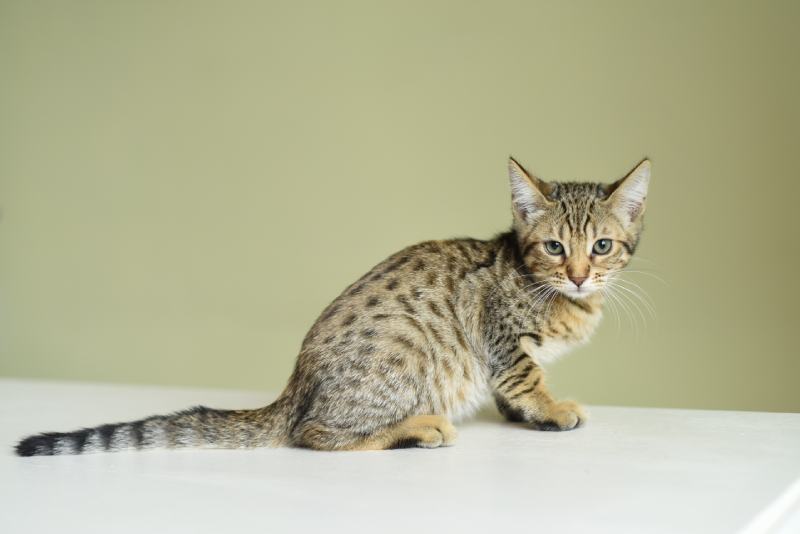
2. Junior
The junior stage continues from 7 months of age until 2 years. This is when most Savannah cats reach their full size and maturity. Some individuals could still be a little longer than this. Speak to your vet about getting your cat neutered or spayed, depending on their age and size.
3. Adult
A Savannah cat typically stays in the adult stage from 3-6 years old. They are active during this stage and will remain energetic throughout if their lifestyle conditions are met, with adequate daily physical exercise and mental stimulation. Maintaining communication with your vet is important, and ensuring all the regular preventative healthcare continues accordingly. During junior and adult years, healthy cats should be seen by a vet on an annual basis.
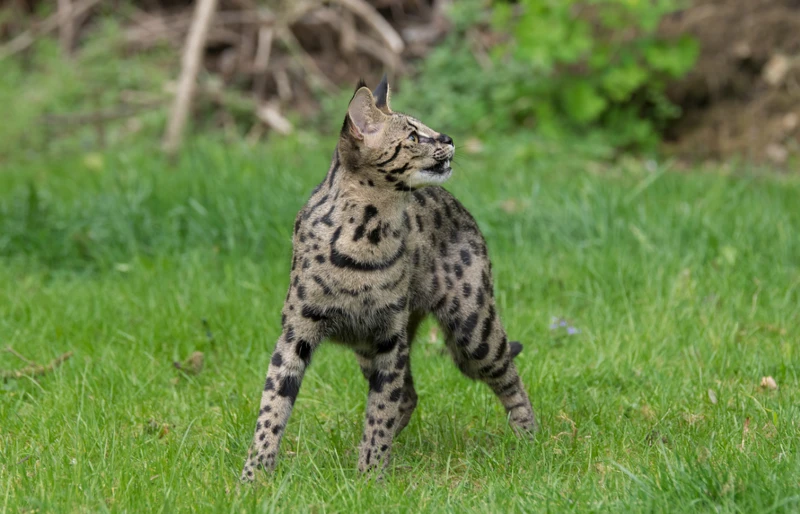
4. Mature
Savannah cats enter the mature stage from around 7 years, until 10. They may be less active during this stage, and their health should be regularly checked. From this stage, it’s advisable to see the vet every 6 months.
5. Senior
Savannah cats are considered seniors after 11 years of age. They may start to slow down, and this is the time when a lot of common health problems arise. Regular vet checks and close monitoring for any subtle changes in their behavior or routines, such as changes in appetite or drinking, and weight loss, should be promptly investigated by a vet.
6. Geriatric or Super Senior
From 15 years onwards, most Savannah cats may sleep all day and become far less active. They need to be monitored more frequently during this stage as health problems are very common and may impair their quality of life if they go unnoticed.
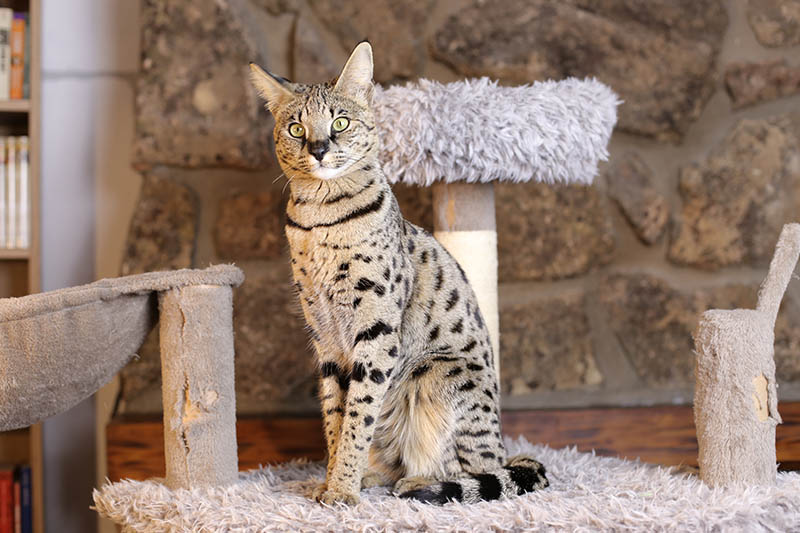

How to Tell Your Savannah Cat’s Age
It’s vital to be able to tell your cat’s age; not only does it enable you to give them the right diet, fulfill their exercise needs, but it also helps prevent medical conditions that come with age. There are several ways you can estimate your Savannah cat’s age, but in most cases, this will be well known from the information supplied by the breeder. In the rare case that your cat was from a rescue, the most efficient way of telling your Savannah cat’s age is by taking them to a veterinarian.
They will check the weight, teeth, and eyes. Young cats below 3 years have less tartar buildup on their teeth and are agile and active. Adults remain in good health but may have more tartar buildup and signs of dental disease. They have also reached their full size. Senior cats may lose the ability to self-groom as efficiently and might develop arthritis, kidney disease, or have age-related changes on their eyes, such as cataracts or nuclear sclerosis.

Conclusion
A well-cared-for Savannah cat can live for 12-15 years on average. These cats are quite intelligent and thrive in a stimulating, active, and social environment. They can figure out how to open doors and cabinets and get quite naughty if they are not adequately stimulated and exercised. Their large size, high energy levels, and charm of a domestic cat make them perfect for large families, especially those with children, as long as they are able to provide them with the safe and spacious outdoor environment, enrichment, plenty of physical exercise and mental stimulation in order to prevent boredom and related welfare concerns.
Featured Image Credit: Kolomenskaya Kseniya, Shutterstock
